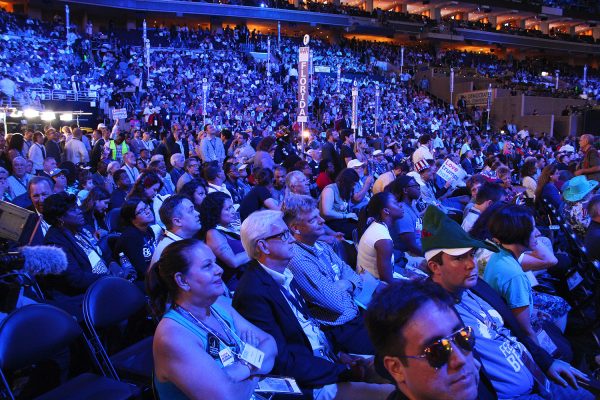
California, Illinois, New York and Texas have 30 percent of the American population between them. Yet because they are late in the primary calendar, they have almost no say in the selection of presidential candidates.
Iowa, New Hampshire and South Carolina have only 3 percent of the population, yet because they are first in line to vote they have disproportionate power in the process. If a candidate fails to win at least one of the first three primary states, he or she usually drops out.
How is that democratic?
Solution
One solution is to give so-called superdelegates more power — or, in the case of the Republican Party, create them.
These are elected and party officials who are not bound by the primary result in their home state, but who can vote at the nominating convention for whichever candidate they prefer.
Gone the other way
Rather than adding superdelegates, or giving them more weight against the 85 percent of regular delegates, Democrats have stripped them of their power in the mistaken belief that they gave Hillary Clinton an unfair advantage over Bernie Sanders in 2016.
Starting in 2020, Democratic superdelegates will only be able to vote if the convention either deadlocks on the first ballot or if a candidate is already assured of victory.
Candidates will no longer be allowed to count superdelegates’ endorsements to their delegate total during the primaries, nor would superdelegates be able to tip a close contest in favor of one candidate or another — which is precisely what they are for.
Representative
The argument that superdelegates are unrepresentative gets its exactly wrong. Take California. Only two elected Democrats from the state, a congressman and a major, endorsed Sanders in 2016. The governor, Jerry Brown, both of California’s senators, the rest of its congressional delegation and seven state legislators endorsed Clinton. Up to the primary in June, polls in California consistently had Clinton 9 points ahead.
One can debate whether the endorsements of party actors inflated Clinton’s support or whether they merely communicated the preferences of their voters. Probably both, which is democracy at work.
What certainly didn’t happen is that California’s superdelegates went against the wishes of their base. Rather, they gave ordinary voters more power by publicly endorsing Clinton months before Californians could vote, thus influencing — or trying to influence — Democratic voters in early primary states. If it wasn’t for California’s superdelegates, Democratic voters in the most populous state in the country would have played no role in the 2016 primary at all.
Risks
Turnout in primaries is low. Fewer than one in five Americans typically vote in the presidential primaries of the two major parties. 2008 and 2016 were exceptions with 30 and 28 percent turnout, respectively.
Even if the parties can repeat that turnout in 2020, it would still put the selection of their presidential candidates in the hands of a minority of voters.
Because voting in primaries — not to mention caucuses — is time-consuming, it are mostly committed partisans who show up, who may not be representative of the electorate at large. Parties could end up with a candidate who appeals to the far left or the far right, but who is not acceptable to swing voters.
The parties have ways to mitigate this risk. Party actors can communicate their preferences to voters through endorsements and the media, and they can influence the process with donations and their organizational capacities. This is the so-called “party decides” theory.
This process failed on the Republican side in 2016, when Donald Trump won the nomination with minority support from Republican voters and little support from elected and party officials.
By stripping superdelegates of their power, Democrats risk a similar scenario in 2020.
